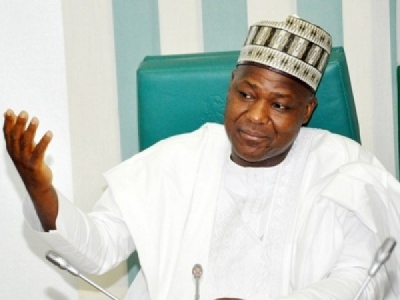
Posted on August 16, 2018
Following several motions calling for an investigation into malpractices in the maritime sector, especially with respect to agencies such as the Nigerian Ports Authority and the National Inland Waterways Authority, the House of Representatives on Monday kicked off its investigation into the allegations.
The investigative hearing, which was convened by the House Committee on Ports, Harbours and Waterways, was necessitated by seven (7) maritime related motions on issues relating to Guaranteed Minimum Tonnage at the Nigeria Ports, extra budgetary spending and other financial improprieties by terminal operators and service providers engaged by the Nigerian Ports Authority, abandonment of dredging projects by companies so contracted, even after allegedly receiving payments and alleged illegal disposal of lands and properties belonging to the Nigerian Ports Authority and the National Inland Waterways Authority of Nigeria.
Speaker of the House of Representatives, Hon. Yakubu Dogara, while speaking at the hearing noted, that the allegations raised are very weighty, with potential to seriously affect the economy.
He emphasized the importance of an effective maritime sector to the Federal Government’s diversification drive and noted that the Nigerian maritime industry still seems to be struggling despite efforts aimed at repositioning it.
“While I commend the Executive Arm, and particularly the managements in the Maritime Industry for their efforts to reposition the Nigerian Maritime Industry for improved service delivery and enhanced contribution to economic growth, I must say that the maritime industry in Nigeria is yet to attain the desired and expected status of becoming the hub for international freight and trade in West Africa. In this regard, it has been observed that over the years, the Nigerian maritime industry has failed to attract the required local and foreign investment inflow that is proportionate to its contribution to both the Nigerian and West African economy, despite its great potential and enormous investment opportunities.”
He described as unacceptable, a situation whereby ports in other West African nations would deliver better and more efficient services than Nigerian ports.
“According to the National Bureau of Statistics in March 2018, Nigeria’s Ports dropped down the global ratings basically due to bad infrastructure. Interestingly, major competitors in the West African region, such as the Port of Lome in Togo, Port of Dakar in Senegal, and the Port of Cotonou in Benin Republic, all deliver better efficient services than the Nigerian Ports. This is really not acceptable.
Some of the problems that have been identified as the reasons why the Nigerian Ports are performing so poorly include bad infrastructure, high cost of doing business and low draught at a lot of our major waterways. It is our hope that the Legislative exercise being carried out through this Committee will proffer lasting solutions to these problems.”
He also emphasized the need to dredge other ports in order to increase traffic and in turn, boost economic productivity.
“It has also been pointed out by stake holders that dredging our port channels will increase traffic to our ports and invariably increase economic productivity. For instance, if we have cargoes going up north to places such as Kaduna, Kano and Maiduguri, such cargoes would not need to go through Lagos, which is already so congested. But for this to happen, the channels of other ports need to be dredged. Reports have it that the Lagos water channel is about 14.5 meters deep, while the Port Harcourt and Calabar channels are less than 10 meters deep, which limits their capacity to receive big cargo ships. This explains why there is so much congestion at the Lagos Port. If we must make the expected progress in our Maritime Sector, all available resources must be accountably and prudently managed to meet the various demands for improved infrastructure.”
The Speaker further highlighted other factors militating against the development of the maritime sector, including alleged arbitrary increases in charges by terminal operators, inefficient collection and accounting procedures, and contract repetitions and payment of huge commissions to service providers compared to remittances to the Federation Account, among others.
“If these allegations are anything to go by, we can understand why the sector has recorded persistent decline in performance and economic growth over the years. Suffice it to say that these are serious allegations which need to be looked into”, he said.
Source: PR Nigeria





